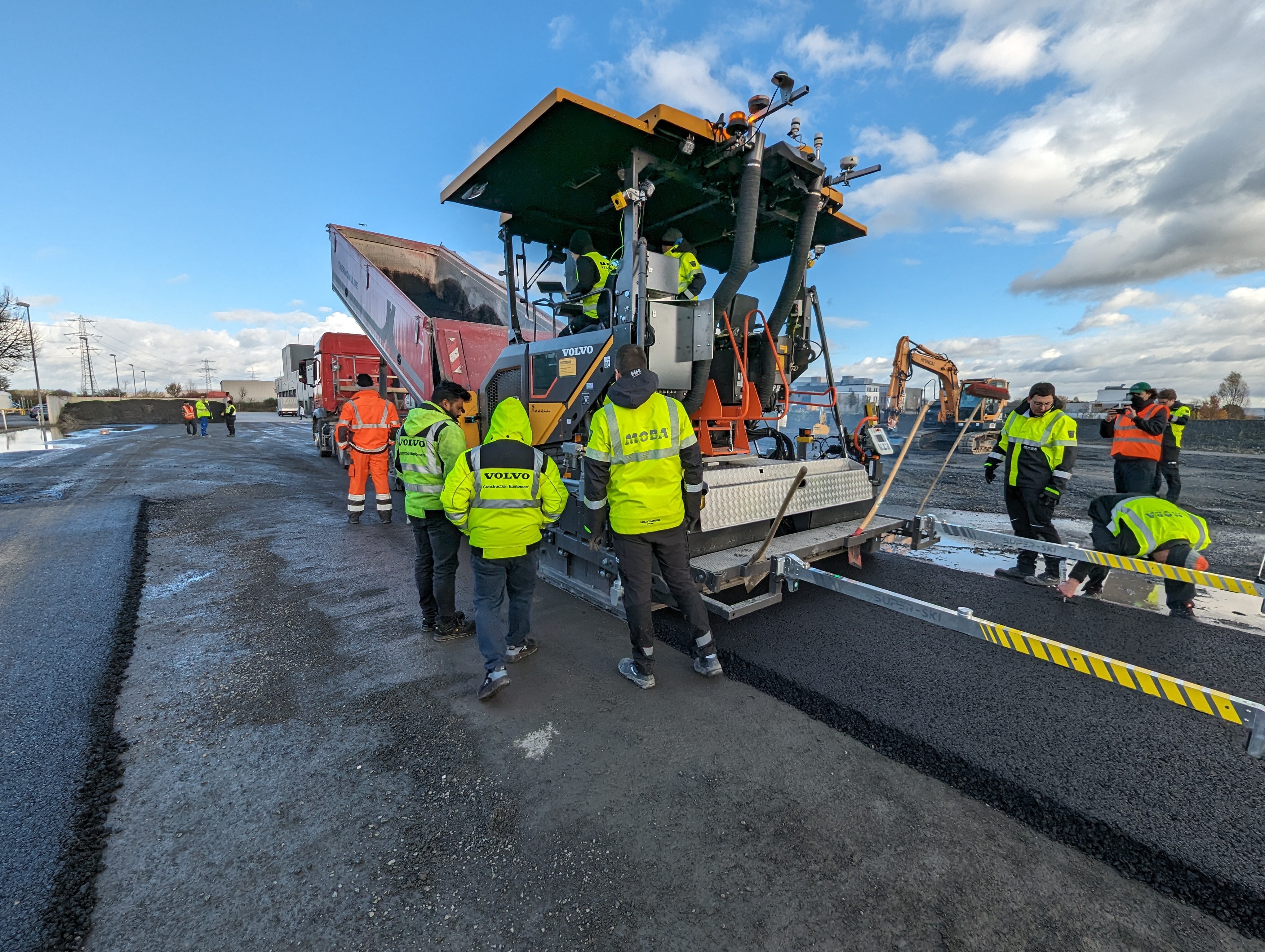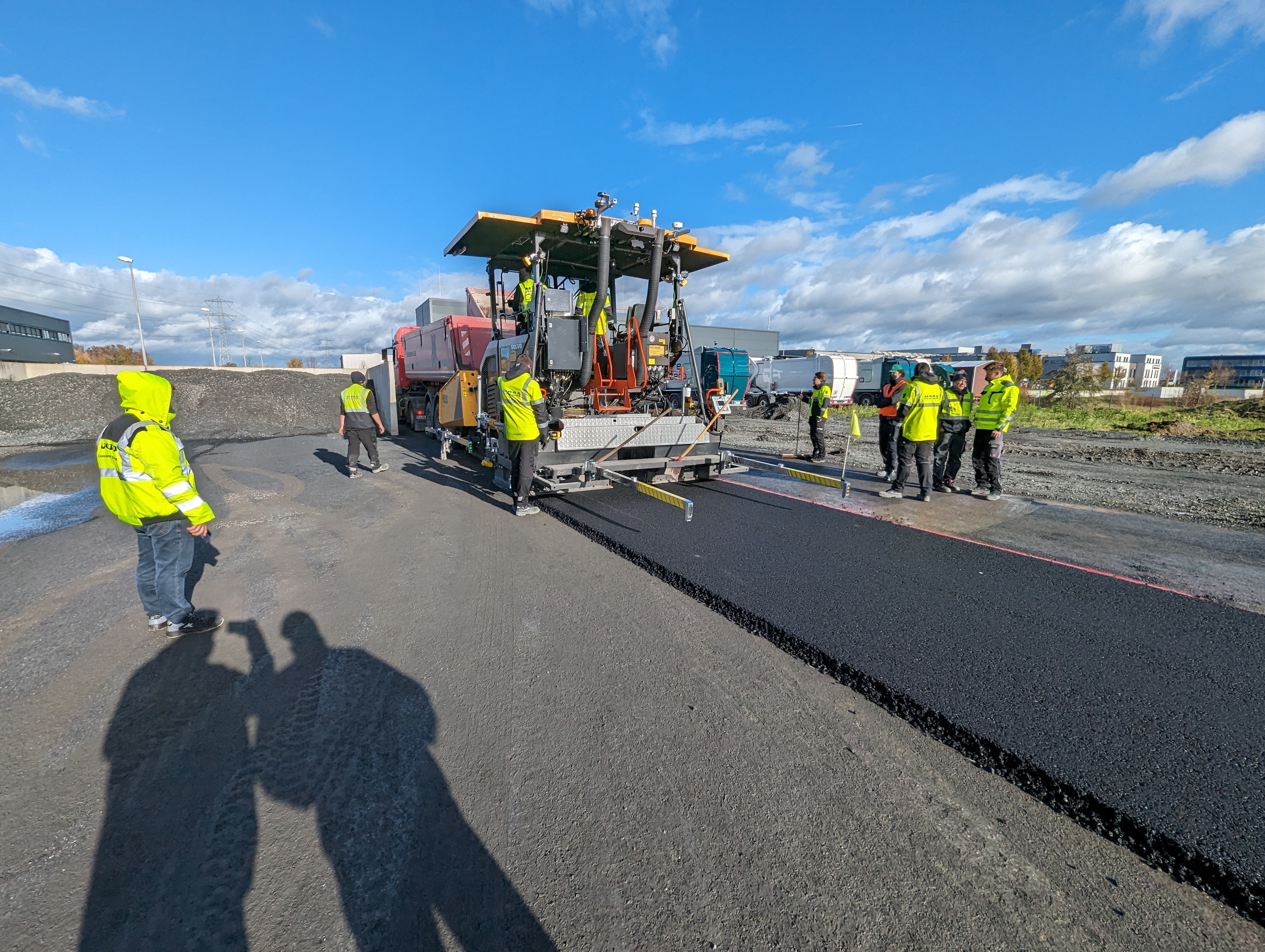MOBA News
Revolutionizing Road Construction: MOBA's Contributions to the InfraROB Project
In November 2023, MOBA, a trailblazer in mobile automation, in collaboration with leading industry actors, conducted groundbreaking tests within the scope of the InfraROB project in Limburg. These tests represent a significant stride in developing autonomous road construction technologies and highlight MOBA's commitment to innovative solutions in infrastructure.
The InfraROB Project: A Bold Venture to Transform Road Construction
The InfraROB project, funded by the EU's Horizon 2020 program, aspires to bring about revolutionary changes in the automation, robotization, and modularization of road construction. The primary goals include a 50% reduction in fatal accidents and traffic disruptions due to maintenance work, a 20% reduction in routine maintenance costs, and a 20% increase in network capacity. "With InfraROB, we are charting new territory in the road construction industry. We aim to usher in a new era of safety and efficiency," explains Torsten Schönbach, Technical Leader for Advanced Development at MOBA.
Testing in Limburg: A Focus on Precision and Safety
The two-day trial in Limburg aimed to demonstrate the efficacy of MOBA's latest technologies under real-world conditions. "These tests are a crucial step to realize our vision of a semi-autonomous construction site, where the safety of construction workers and the quality of work are paramount," says Benedikt Sehner, Lead Engineer for Advanced Development at MOBA. In the future, road construction companies can semi-autonomously execute large and long-distance projects like highways or rural roads.
MOBA's Innovative Technologies in Action
On the first day, the focus was on autonomous driving with a paver. With a screed width of 3 meters, substitute material was used. The second day was dedicated to laying an asphalt binder course, processing around 70 tons.
The technologies tested included integrating a fiber optic cable to analyze the long-term effects of traffic overpasses and digitally evaluate the condition of the asphalt and the road. This system, significantly developed by the TH Köln, will enable digital road condition assessment in the future.
Furthermore, the TU Darmstadt's Institute for Road and Transport Science tested the vibration unit on the paver, increasing frequencies from 0 to 1500 and up to 3000 revolutions per minute to analyze the impact on the asphalt's compaction, texture, and surface properties. Equivalent tests were conducted with the tamper. These tests were very successful thanks to the consistent layer thickness supported by the Super-Ski system and the MOBA team's expertise.
A temperature variation test was also carried out with different asphalt temperatures to show the influence of temperature on layer thickness. MOBA's Advanced Leveling System compensated for this influence. Advanced leveling refers to the overarching control of the screed's trailing edge. This test utilized the layer thickness control, which autonomously regulates the specified installation thickness.
Successful Partnership: TU Darmstadt's Institute for Road and Transport Science and MOBA
The collaboration between the Institute for Road and Transport Science and MOBA during the tests exemplified the strength of combining academic research with practical application. With the Institute for Road and Transport Science as a research partner, MOBA analyzed the effects of vibrations on asphalt compaction and gathered critical data for further development of asphalt technology. "This type of collaboration is essential to drive innovations that transform the industry," emphasizes Schönbach.
Results and Outlook
The tests in Limburg have made it clear that MOBA's technologies can significantly improve road construction safety and quality. "We are proud that our technologies make construction more efficient and safer," explains Schönbach.
Leandro Harries from the Institute for Road and Transport Science at the TU Darmstadt emphasizes the importance of human expertise: "Even in an increasingly automated world, the specialized knowledge of onsite workers is indispensable. Our technologies are designed to support their work, not to replace it."
The InfraROB project is looking forward to its next highlight in the fall of 2024: the autonomous construction of a section of the highway near Vienna. "We eagerly anticipate 2024, when we will reap the fruits of our labor and take another step toward a safer and more efficient road construction industry," concludes Schönbach.
With these tests and the ongoing commitment to the InfraROB project, MOBA demonstrates its leadership in the industry and sets new standards for the future of road construction.
back to overview



